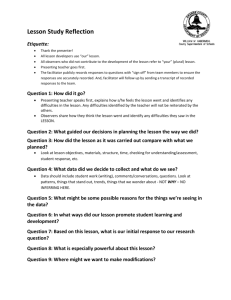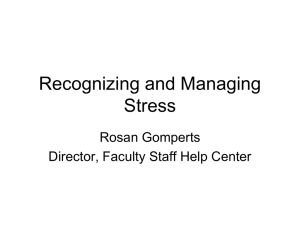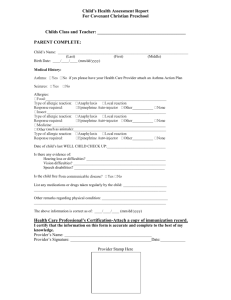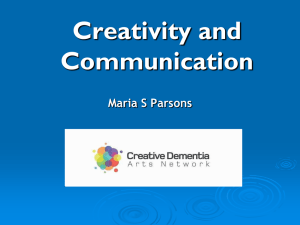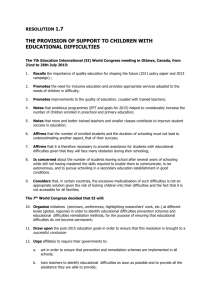Mental Health Difficulties: A Guide to the Equality Act (EA)
advertisement
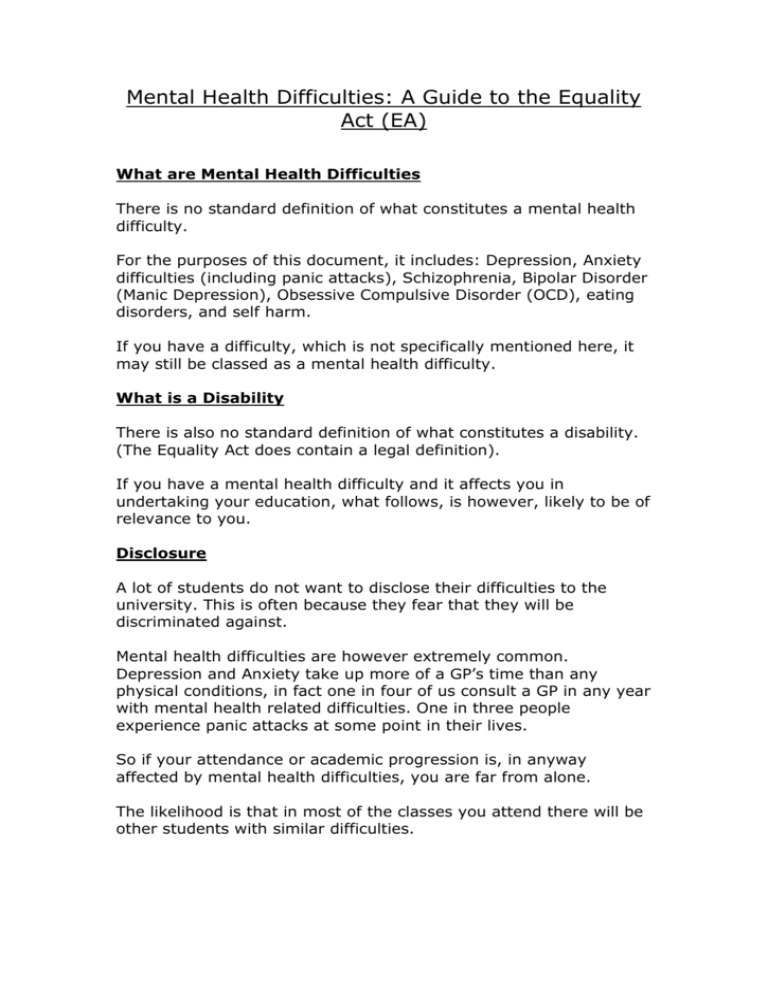
Mental Health Difficulties: A Guide to the Equality Act (EA) What are Mental Health Difficulties There is no standard definition of what constitutes a mental health difficulty. For the purposes of this document, it includes: Depression, Anxiety difficulties (including panic attacks), Schizophrenia, Bipolar Disorder (Manic Depression), Obsessive Compulsive Disorder (OCD), eating disorders, and self harm. If you have a difficulty, which is not specifically mentioned here, it may still be classed as a mental health difficulty. What is a Disability There is also no standard definition of what constitutes a disability. (The Equality Act does contain a legal definition). If you have a mental health difficulty and it affects you in undertaking your education, what follows, is however, likely to be of relevance to you. Disclosure A lot of students do not want to disclose their difficulties to the university. This is often because they fear that they will be discriminated against. Mental health difficulties are however extremely common. Depression and Anxiety take up more of a GP’s time than any physical conditions, in fact one in four of us consult a GP in any year with mental health related difficulties. One in three people experience panic attacks at some point in their lives. So if your attendance or academic progression is, in anyway affected by mental health difficulties, you are far from alone. The likelihood is that in most of the classes you attend there will be other students with similar difficulties. What the EA requires the university to do: If you do disclose your difficulties, the EA means that it would in fact be unlawful for anyone employed by the university to discriminate against you. The EA also requires that if you do disclose your difficulties the university has to make “reasonable adjustments” to take account of your needs. If there is any aspect of your university experience which you are having difficulty with (including social and leisure activities organised by NTU), it is well worth discussing this. Many students with mental health difficulties do not ask for adjustments to be made. You may assume that nothing can be changed, but there are a wide range of adjustments which can be made, many of which you may not have thought of. Adjustments are made in areas including examinations, presentations, and the amount of support offered by tutors. Entitled to Adjustments When you have mental health difficulties, you are often encouraged to access treatment, such as medication or Counselling. It is less common for you to be encouraged to think about your rights. Most students with mental health difficulties would consider it reasonable for the university to make adjustment to take account of the needs of a student who used a wheelchair. Many of the same students are a lot harder on themselves. How Difficult do things have to be? Many students with mental health difficulties delay discussing their situation because they think that other people’s situations must be much worse. If you are having any difficulties as a result of mental health difficulties which are affecting your studies we would prefer you came and talked to us. We would prefer to work with you on preventing things getting worse for you, and to anticipate difficulties you may encounter, rather than just reacting when things have gone wrong. Where to go for Further Advice or Information. If you would like to discuss anything contained in this leaflet, you may want to make an appointment to see someone from the Mental Health Support Team. We are able to meet with students on all three campuses, and any discussions you have, will remain confidential unless you agree to information being passed on. The only exceptions to this would be if there were concerns that you may pose a serious risk to yourself or other people The Mental Health Support Team Tel: (0115) 848 2085 E-mail: mental.health@ntu.ac.uk Other services: The Counselling Service Tel: (0115) 848 6487 Email: counselling@ntu.ac.uk GP Services: Sandby Medical Practice (City Site) Tel: (0115) 848 6481 Sunrise Medical Practice (Clifton Campus) Tel: (0115) 848 3100 Southwell Medical Centre (near Brackenhurst campus) Tel: (01636) 813 561
